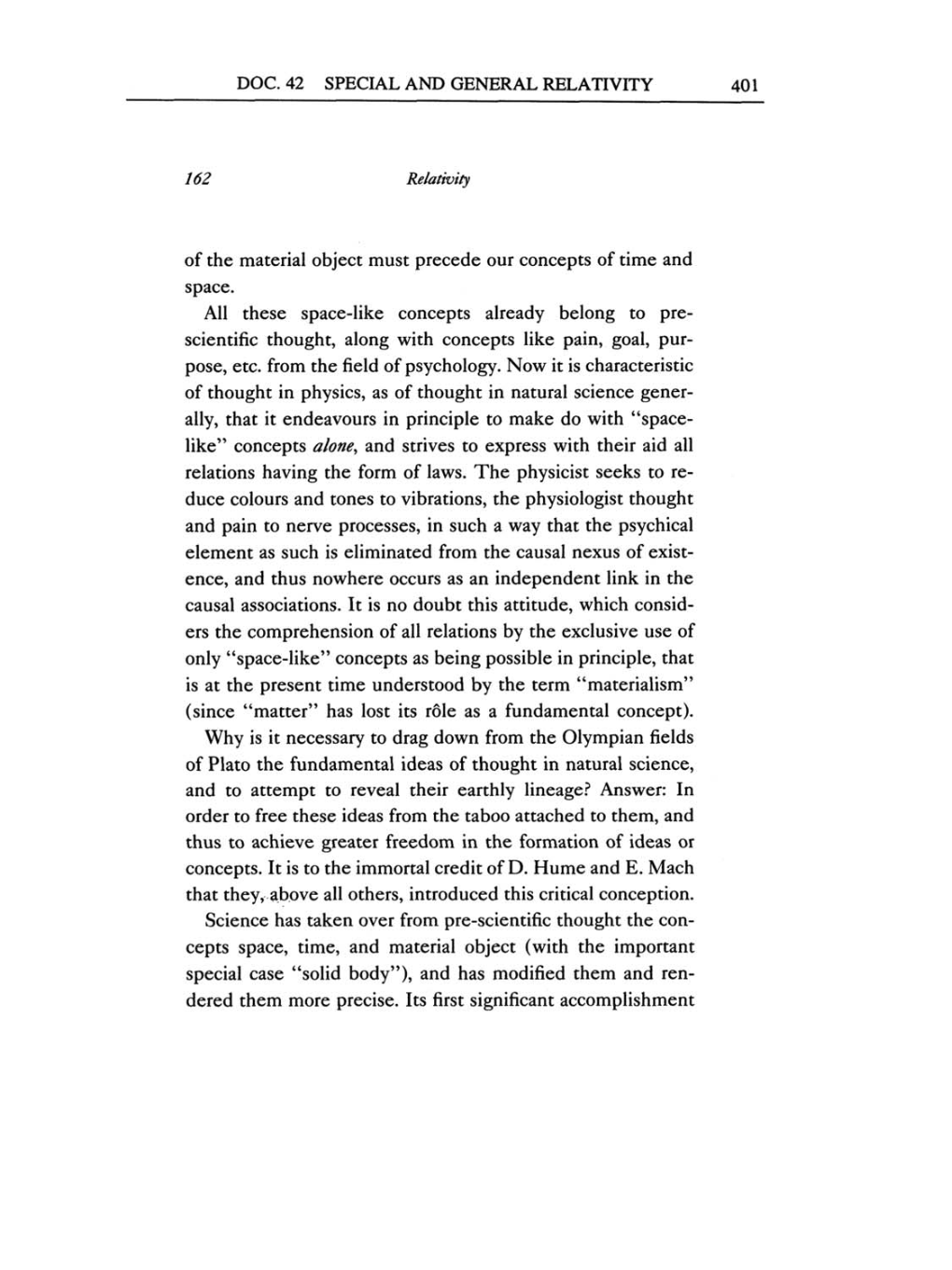DOC.
42
SPECIAL AND GENERAL
RELATIVITY
401
162
Relativity
of the material
object must precede
our
concepts
of time and
space.
All
these
space-like concepts already belong to
pre-
scientific
thought, along
with
concepts
like
pain, goal,
pur-
pose, etc.
from the field
of
psychology.
Now it
is
characteristic
of
thought
in
physics,
as
of
thought
in
natural science
gener-
ally,
that
it
endeavours in
principle to
make
do
with
"space-
like"
concepts alone,
and strives
to express
with
their
aid all
relations
having
the
form
of
laws.
The
physicist
seeks
to
re-
duce
colours
and
tones to
vibrations,
the
physiologist thought
and
pain
to nerve
processes,
in
such
a way
that the
psychical
element
as
such
is
eliminated
from
the
causal
nexus
of exist-
ence,
and thus nowhere
occurs
as an
independent
link
in
the
causal
associations. It
is
no
doubt this
attitude,
which consid-
ers
the
comprehension
of
all
relations
by
the exclusive
use
of
only
"space-like"
concepts
as
being possible
in
principle,
that
is
at
the
present
time understood
by
the
term
"materialism"
(since
"matter"
has
lost
its role
as a
fundamental
concept).
Why
is
it
necessary to drag
down
from
the
Olympian
fields
of Plato
the fundamental ideas of
thought
in natural
science,
and
to
attempt
to
reveal their
earthly lineage?
Answer:
In
order
to
free these ideas
from
the taboo attached
to
them,
and
thus
to
achieve
greater
freedom
in
the formation of ideas
or
concepts.
It
is
to
the immortal credit of
D.
Hume and
E.
Mach
that
they,
above
all
others,
introduced this
critical
conception.
Science
has
taken
over
from
pre-scientific thought
the
con-
cepts space,
time,
and material
object
(with
the
important
special
case
"solid
body"),
and
has
modified them and
ren-
dered them
more
precise.
Its
first
significant accomplishment
